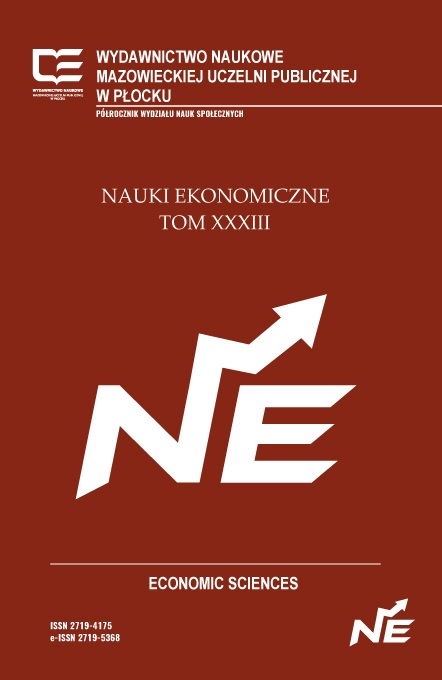PARTY FUNDING IN POLAND
DOI:
https://doi.org/10.19251/ne/2021.33(8)Keywords:
party funding, political parties, state budgetAbstract
The paper looks at subsequent party finance regulations in Poland and analyzes their impact on party budgets. An overview of four stages of party finance regulation is given, starting with a laissez-faire Party Law of 1990 with no state party funding at all but with ample opportunities for raising money in another ways. Second stage starts with the electoral law of 1993 and ends when Party Law of 1997 is adopted. In this period state party funding is introduced as a reimbursement of electoral expenses. In the third period starting the introduction of new Party Law adopted in 1997 state party funding is expanded. Current way of party funding, still in place but with some adjustments, was introduced in 2001 by the amendment to the Party Law of 1997. State party funding was kept, however with loosened requirements for being entitled to access it. The paper concludes that consequent changes to party finance gave more public money to political parties and now they rely heavily on state funding and the share of it is greater after elections.
References
Casal Bértoa, F., Piccio, D. R., Rashkova, E. R. (2014). Party Laws in Comparative Perspective, w: Regulating Political Parties: European Democracies in Comparative Perspective. I. van Bie¬zen, H.-M. ten Napel (red.). Leiden University Press, Leiden.
Casal Bértoa, F., Spirova, M. (2019). Parties between thresholds: State subsidies and party be¬haviour in post-communist democracies. Party Politics, 25(2). doi: 10.1177/1354068817710221.
Casal Bértoa, F., van Biezen, I. (2014). Party regulation and party politics in post-communist Europe. East European Politics, 30(3). doi: 10.1080/21599165.2014.938738.
Gąsior, T. (2013). Problematyka finansowania partii politycznych w Polsce. Przegląd Sejmowy (5).
Gendźwiłł, A., Bukowska, G., Haman, J., Sawicki, A., Zbieranek, J. (2007). Finanse polskich partii. Fundacja im. Stefana Batorego, Warszawa.
Hutcheson, D. S. (2013). Party Cartels Beyond Western Europe: Evidence from Russia. Party Politics, 19(6). doi: 10.1177/1354068811436033
Katz, R. S., Mair, P. (1995). Changing Models of Party Organization and Party Democracy: The Emergence of the Cartel Party. Party Politics, 1(1). doi: 10.1177/1354068895001001001.
Katz, R. S., Mair, P. (2009). The Cartel Party Thesis: A Restatement. Perspectives on Politics, 7(4). doi: 10.1017/S1537592709991782.
Kitschelt, H. (2000). Citizens, politicians, and party cartellization: Political representation and state failure in post–industrial democracies. European Journal of Political Research, 37(2). doi: 10.1111/1475-6765.00508.
Nassmacher, K.-H. (1989). Structure and impact of public subsidies to political parties in Europe: the examples of Austria, Italy, Sweden and West Germany, w: Comparative Political Finance in the 1980s. H. E. Alexander (red.), (pp. 236-267). Cambridge University Press, Cambridge.
Pierre, J., Svåsand, L., & Widfeldt, A. (2000). State Subsidies to Political Parties: Confronting Rhetoric with Reality. West European Politics, 23(3). doi: 10.1080/01402380008425381.
Radecki, M. (2012). Czy w Polsce istnieje kartel partii politycznych. Świat Idei i Polityki, 11.
Rashkova, E. R. (2020). Setting-up the Stage?!: Party Competition and Electoral Law in Central and East-Europe. Problems of Post-Communism, 67(6). doi: 10.1080/10758216.2019.1693276.
Scarrow, S. E. (2006). Party Subsidies and the Freezing of Party Competition: Do Cartel Me¬chanisms Work? West European Politics, 29(4). doi: 10.1080/01402380600842148.
Szczerbiak, A. (2006). State Party Funding and Patronage in Post-1989 Poland. Journal of Com¬munist Studies and Transition Politics, 22(3). doi: 10.1080/13523270600855688.
Ustawa z dnia 12 kwietnia 2001 r. Ordynacja wyborcza do Sejmu Rzeczypospolitej Polskiej i do Senatu Rzeczypospolitej Polskiej (Dz.U. 2001 nr 46 poz. 499).
Ustawa z dnia 27 czerwca 1997 r. o partiach politycznych (Dz.U. Nr 98, poz. 604)
Ustawa z dnia 28 czerwca 1991 r. Ordynacja wyborcza do Sejmu Rzeczypospolitej Polskiej (Dz.U. 1991 nr 59 poz. 252).
Ustawa z dnia 28 lipca 1990 r. o partiach politycznych (Dz.U. 1990 nr 54 poz. 312).
Ustawa z dnia 28 maja 1993 r. Ordynacja wyborcza do Sejmu Rzeczypospolitej Polskiej (Dz.U. 1993 nr 45 poz. 205).
van Biezen, I. (2012). Constitutionalizing Party Democracy: The Constitutive Codifica¬tion of Political Parties in Post-war Europe. British Journal of Political Science. doi: 10.1017/S0007123411000263.
van Biezen, I., Borz, G. (2012). Models of party democracy: patterns of party regulation in post-war European constitutions. European Political Science Review, 4(3). doi: 10.1017/S1755773911000294.
Walecki, M. (2000). Dochody polskich partii politycznych – regulacje prawne i praktyka, w: Fi-nansowanie polityki: wybory, pieniądze, partie polityczne. M. Walecki (red.). Wydawnictwo Sejmowe, Warszawa.
Walecki, M. (2007). Political Finance in Poland, w: Political Finance and Corruption in Eastern Europe: The Transition Period. D. Smilov, J. Toplak (red.). Ashgate, Aldershot.
Winczorek, P. (1971). Formy regulacji prawnej działalności partii politycznych w niektórych państwach burżuazyjnych. Państwo i Prawo, (1).
